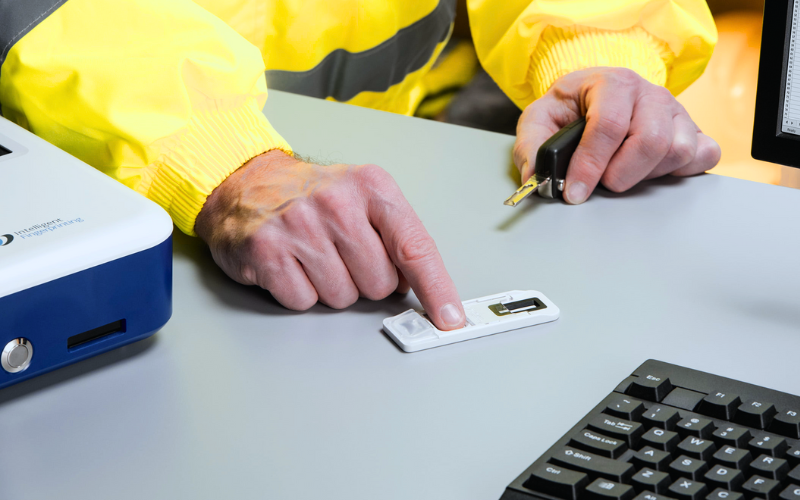Workplace drug testing is increasingly becoming an integral part of company policies across various sectors in the UK, driven by growing concerns over safety, productivity, and the legal implications of drug use. This article delves into the current landscape of workplace drug testing policies in the UK, particularly in high-risk sectors, and explores the impact, challenges, and future developments in this area.
As of 2024, it is estimated that approximately 60% of UK businesses have implemented some form of drug and alcohol policy. However, active drug testing is still relatively rare, with less than 20% of workplaces conducting regular testing (TopicUk Business Magazine). The prevalence of drug testing varies significantly depending on the industry, with high-risk sectors such as construction, transportation, and healthcare leading the way due to the critical importance of maintaining safety standards.
Sector-Specific Approaches:
- Construction Industry: The construction industry is one of the most vigilant when it comes to drug testing, given the significant safety risks associated with impairment on the job. A survey in 2022 revealed that nearly 39% of construction workers had witnessed colleagues working under the influence of drugs or alcohol (TopicUk Business Magazine). Major construction firms, including Barratt Developments and Interserve, have implemented robust drug testing policies that are not yet legally mandated but are expected to become more standardised as safety regulations evolve.
- Transportation Sector: Drug testing is mandatory for employees in certain parts of the transportation industry, particularly those working in rail transport, where the Transport and Works Act of 1992 mandates regular drug and alcohol testing. In aviation, while not universally mandated, many airports have adopted stringent testing policies, especially following incidents where impairment was suspected (British Safety Council). These policies typically involve both pre-employment screening and random testing throughout employment.
- Healthcare Sector: The healthcare sector, despite being high-risk, has a more nuanced approach to drug testing. Routine or random drug testing is generally not practiced across the NHS; instead, testing is typically reserved for cases where there is a suspicion of impairment that could affect patient care. The focus in this sector tends to be on rehabilitation rather than punishment, with testing often being a part of ongoing medical supervision for healthcare workers undergoing treatment for substance misuse (The Drug and Alcohol Testing Blog).
Challenges in Implementation:Despite the clear benefits of drug testing, many companies face challenges in its implementation. The costs associated with regular testing, potential legal repercussions, and the need for specialized personnel to conduct and analyse tests are significant barriers. Furthermore, the stigma and privacy concerns surrounding drug testing can lead to resistance from employees and unions.
Innovations and Future Trends: Recent advancements in testing technology are addressing some of these challenges. For instance, fingerprint sweat drug testing from Intelligent Fingerprinting has emerged as a less invasive and more cost-effective alternative to traditional urine tests and oral swabs. These tests can detect a range of substances, including cannabis, cocaine, methamphetamines and opiates, and are gaining popularity in sectors where rapid and frequent testing is necessary. (British Safety Council).
Looking forward, there is potential for more widespread adoption of drug testing policies across different industries, particularly as more data emerges linking substance misuse to workplace accidents and productivity losses. Legislative changes may also drive this trend, with increasing pressure on regulators to mandate testing in safety-critical roles across all sectors.
While current policies vary widely between sectors, the trend is towards more comprehensive and routine testing, supported by advancements in technology and growing recognition of the risks associated with workplace substance misuse. As the landscape evolves, businesses must balance the need for safety with considerations of employee privacy and the ethical implications of drug testing.
To learn more about how our fingerprint drug testing system can enhance safety and productivity in your workplace while respecting employee privacy and addressing the ethical concerns of drug testing, we invite you to book a free, no-obligation demonstration. Discover firsthand how our innovative approach ensures a secure work environment without compromising on dignity and respect for your team. Contact us today to schedule your demonstration and see how we can help you maintain a safer, more efficient workplace.









